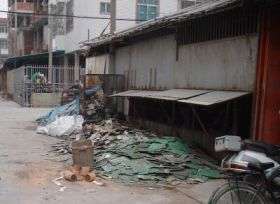Elevated concentrations of metals in China’s e-waste recycling workshops

In a case study on how not to recycle electronic waste (e-waste), scientists in the United States and Hong Kong have documented serious environmental contamination with potentially toxic metals from crude e-waste recycling in a village located in southeast China.
Recycling methods used in family-run workshops could pose a serious health risk to residents of the area through ingestion and inhalation of contaminated dust, the researchers say. Their study is scheduled for the April 15 issue of ACS’ Environmental Science & Technology.
The process of discarding computers and other consumer electronics has emerged as one of the fastest growing segments of the global waste stream. Known as e-waste, these scrapped electronic goods contain lead, copper and other hazardous materials, which can release dangerous toxins that cause air and water contamination. Up to 50-million tons of e-waste is generated worldwide each year — enough to fill a line of garbage collection trucks stretching halfway around the world — according to the United Nations Environment Program.
China is now the destination for 70 percent of the computers, TVs, cell phones, and other e-waste recycled globally each year. Ming H. Wong and colleagues collected dust samples from roads adjacent to e-waste processing workshops in Guiya, China, to find that lead levels were 330 and 371 times higher than non e-waste sites located 5 miles and 19 miles away. Copper levels were 106 and 155 times higher.
“Currently, there are no guidelines or regulations for heavy metals in dust. It is hoped that the results can serve as a case study for similar e-waste activities in countries such as Africa, India and Vietnam where e-waste is becoming a growing problem, so that the same mistakes could be prevented.”
Source: ACS





















